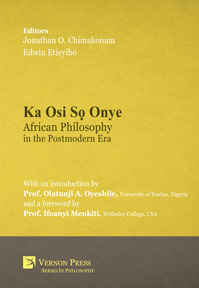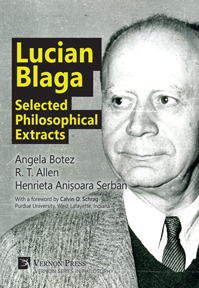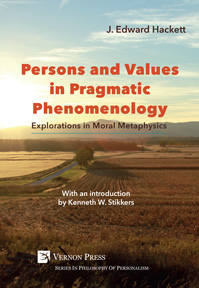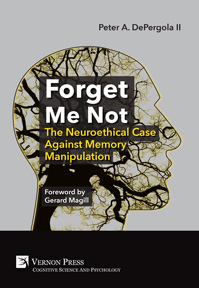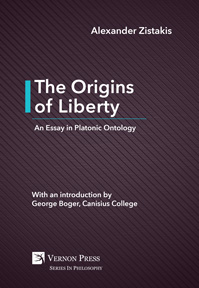Search
Browse
by Publication status
by Subject
Anthropology (26) Art (122) Business and Finance (25) Cognitive Science and Psychology (53) Communication and Journalism (43) Economics (61) Education (65) History (145) Human Geography (22) Interdisciplinary (40) Language and Linguistics (128) Law (16) Music Studies (18) Philosophy (153) Political Science and International Relations (99) Sociology (295) Statistics and Quantitative Methods (19)by Series
Series in Literary Studies (62) Series in Philosophy (58) Series in Education (49) Series in Sociology (42) Series in World History (31) Series in Politics (30) Bridging Languages and Scholarship (27) Series in Language and Linguistics (25) Cognitive Science and Psychology (20) Series in Philosophy of Religion (20) Series in American History (19) Series in Art (19) Critical Perspectives on Social Science (16) Series in Cinema and Culture (16) Curating and Interpreting Culture (15) Series on the History of Art (14) Series in Anthropology (13) Series in Critical Media Studies (13) Economics (13) Series in Business and Finance (12) Series in Music (12) Series in Communication (9) Series in Performing Arts (9) Philosophy of Personalism (8) Series in Law (8) Series in Economic Methodology (7) Series on Climate Change and Society (7) Classics in Economics (6) Series in Economic Development (6) Women's Studies (6) Philosophy of Forgiveness (5) Series in Built Environment (5) Series in Economic History (5) Series in Philosophy of Science (4) Series in Social Equality and Justice (4) Series on the History of Science (4) Serie en Sociología (3) Series in Contemporary History (3) Series in Creative Writing Studies (3) Series in Design (3) The Interdisciplinary Built Environment (3) Serie En Estudios Literarios (2) Series in Heritage Studies (2) Series in Innovation Studies (2) Serie en Ciencias Políticas (1) Serie en Comunicación y Medios (1) Serie en Entorno Construido (1) Serie en Estudios Culturales (1) Serie en Filosofía (1) Serie en Filosofía de la Ciencia (1) Serie en Música (1) Series in Classical Studies (1) Series in Economics of Technological Change (1) Series in Philosophy of Race (1) Series in Urban Studies (1)by Language
English Spanishby Author
Browsing with filters

Ka Osi Sọ Onye: African Philosophy in the Postmodern Era
Edited by
Jonathan O. Chimakonam, University of Pretoria, South Africa
and Edwin Etieyibo, University of the Witwatersrand
Availability: In stock
394pp. ¦ $67 £50 €57
This collection is about composing thought at the level of modernism and decomposing it at the postmodern level where many cocks might crow with African philosophy as a focal point. It has two parts: part one is titled ‘The Journey of Reason in African Philosophy’, and part two is titled ‘African Philosophy and Postmodern Thinking’. There are seven chapters in both parts. Five of the essays are reprinted here as important selections while nine are completely new essays commissioned for this book. As their titles suggest, in part one, African philosophy is unfolded in the manifestation of reason as embedded in modern thought while in part two, it draws the effect of reason as implicated in the postmodern orientation. While part one strikes at what V. Y. Mudimbe calls the “colonising structure” or the Greco-European logo-phallo-euro-centricism in thought, part two bashes the excesses of modernism and partly valorises postmodernism. In some chapters, modernism is presented as an intellectual version of communalism characterised by the cliché: ‘our people say’. Our thinking is that the voice of reason is not the voice of the people but the voice of an individual. The idea of this book is to open new vistas for the discipline of African philosophy. African philosophy is thus presented as a disagreement discourse. Without rivalry of thoughts, Africa will settle for far less. This gives postmodernism an important place, perhaps deservedly more important than history of philosophy allocates to it. It is that philosophical moment that says ‘philosophers must cease speaking like gods in their hegemonic cultural shrines and begin to converse across borders with one another’. In this conversation, the goal for African philosophers must not be to find final answers but to sustain the conversation which alone can extend human reason to its furthermost reaches.
Lucian Blaga: Selected Philosophical Extracts
Edited by
R. T. Allen et al.
Availability: In stock
190pp. ¦ $58 £44 €49
After the Editor's General Introduction, the extracts include central elements of Blaga’s metaphysics, general epistemology, philosophies of science, history, religion, language and especially metaphor, the experience of space and time, art, and finally culture which includes all of them, especially the presence in all of ‘style’ and distinctive ways of practising them. All these extracts are linked by his general epistemology, especially his distinction between two types of knowledge: ‘paradisiac’ or Type 1, which is that of everyday awareness and the current methods, concepts and presuppositions of the sciences of nature and humanity, plus mathematics and philosophy, and accumulates in ‘plus knowledge’ and resolves problems in standard ways; and ‘Luciferican’ or Type 2, which opens up the ‘mysteries’ of new realms of reality which do not fit the current methods, concepts and presuppositions, and so results in ‘minus’ knowledge, the awareness that there are things which at the moment we cannot understand. For these ‘mysteries’ new methods, concepts and presuppositions are required, which ‘abyssal’ categories can supply, ones below those we normally employ and may be aware of. It is part of man’s role in the cosmos to reveal such mysteries. They are also linked by Blaga's awareness of historical changes, especially ‘dogmatic aeons’ in which a prevailing framework of categories, etc., guides knowledge and research, and ones in which Type 2 knowledge dominates and new frameworks are eventually created. Each extract has its own Introduction which places it in the context of the rest of his interlinked philosophy. They show how Blaga, with both general themes and concepts and also with particular examples, combines much of the concerns and methods of Analytic and Continental philosophy, and how his historical perspective applied especially to modern times long before anyone spoke of 'postmodernism', and thus as in his lifetime.
Persons and Values in Pragmatic Phenomenology
Explorations in Moral Metaphysics
J. Edward Hackett, Savannah State University
Availability: In stock
250pp. ¦ $61 £44 €49
This book brings together the author’s overall research trajectory of the last five years of his life and the questions he has been asking himself: What is the person? And, what are values? In answering the latter question, Hackett arrived at an answer within the boundaries of Max Scheler, the German phenomenologist, but consequently started to explore the depths of which Scheler’s value ontology was predicated on certain assumptions about the person. From these questions, Hackett started to draw upon philosophical approaches that thematize experience—pragmatism and phenomenology. Rooted in the philosophical contributions of Scheler and the American philosopher, William James, this book guides the reader through a fascinating exploration of these philosophical approaches in relation to the person and values. Through thematizing experience, this book reveals that the ontology of value for Scheler resides not only in a person’s intentionality but also in the being-of-an-act. As such, this book argues that the deficit of an ontology of value in Scheler rests on interpreting his affective intentionality in much the same way that Heidegger employed phenomenology to discern the ontological care structure of Dasein. In other words, for Scheler, the ontology of value rests on the manner in which values were realized by a person’s intentionality. Moreover, this book goes further to reveal that the intentional act life is the source of participation and can be understood as a process-based account of value, otherwise known as account participatory realism. Importantly, within participatory realism Hackett addresses how values have their origin in the process of intentionality since intentionality is generative of meaning. As an important contribution to the field of moral metaphysics, Hackett’s critical reflection on the person and values provides a stimulating insight into some of the key debates surrounding pragmatism and phenomenology that will be of great interest to both experienced scholars and researchers, alike.
Forget Me Not: The Neuroethical Case Against Memory Manipulation
Peter A. DePergola II, University of Massachusetts Medical School; College of Our Lady of the Elms
Availability: In stock
312pp. ¦ $64 £48 €54
The first philosophical monograph on the ethics of memory manipulation (MM), "Forget Me Not: The Neuroethical Case Against Memory Manipulation" contends that any attempt to directly and intentionally erase episodic memories poses a grave threat to the human condition that cannot be justified within a normative moral calculus. Grounding its thesis in four evidential effects – namely, (i) MM disintegrates autobiographical memory, (ii) the disintegration of autobiographical memory degenerates emotional rationality, (iii) the degeneration of emotional rationality decays narrative identity, and (iv) the decay of narrative identity disables one to seek, identify, and act on the good – DePergola argues that MM cannot be justified as a morally licit practice insofar as it disables one to seek, identify, and act on the good. A landmark achievement in the field of neuroethics, this book is a welcome addition to both the scholarly and professional community in philosophical and clinical bioethics.
The Origins of Liberty: An Essay in Platonic Ontology
March 2018 / ISBN: 978-1-62273-289-0Availability: In stock
424pp. ¦ $68 £48 €55
Unlike the vast majority of existing literature on Plato, this book seeks to argue that liberty constitutes the central notion and preoccupation of Platonic thought and that his theory of ideas is indeed a theory of liberty. Moreover, this book contends that Plato’s thought can be understood to be both one of liberty and a theory of liberation. Bound up in its efforts to reveal both the ideal liberty and the conditions and possibility of its existence in the so-called ‘real world,’ the thought of liberty tends to be all-encompassing. Consequently, this book seeks to expose how liberty can be understood to influence Plato’s ontological form of analysis in relation to politics, philosophy, and anthropology, as well as its influence on the structural unity of all three. Understood from such a perspective, this book frames Platonic philosophy as primarily an investigation, an articulation and as a way of establishing the relationship between the individual and the collective. Importantly, this relationship is acknowledged to be the natural and original framework for any conception and exercise of human liberty, especially within democratic theory and politics. By treating Plato’s philosophy as a continuous effort to find modes and dimensions of liberation in and through different forms of this relationship, this book hopes to not only engage in the discussion about the meaning of Platonic ontological-political insights on different grounds, but also to provide a different perspective for the evaluation of its relevance to the main contemporary issues and problems regarding liberty, liberation, democracy and politics. This book will be of interest to both undergraduate students, experienced scholars and researchers, as well as to the general public who have an interest in philosophy, classics, and political theory.

